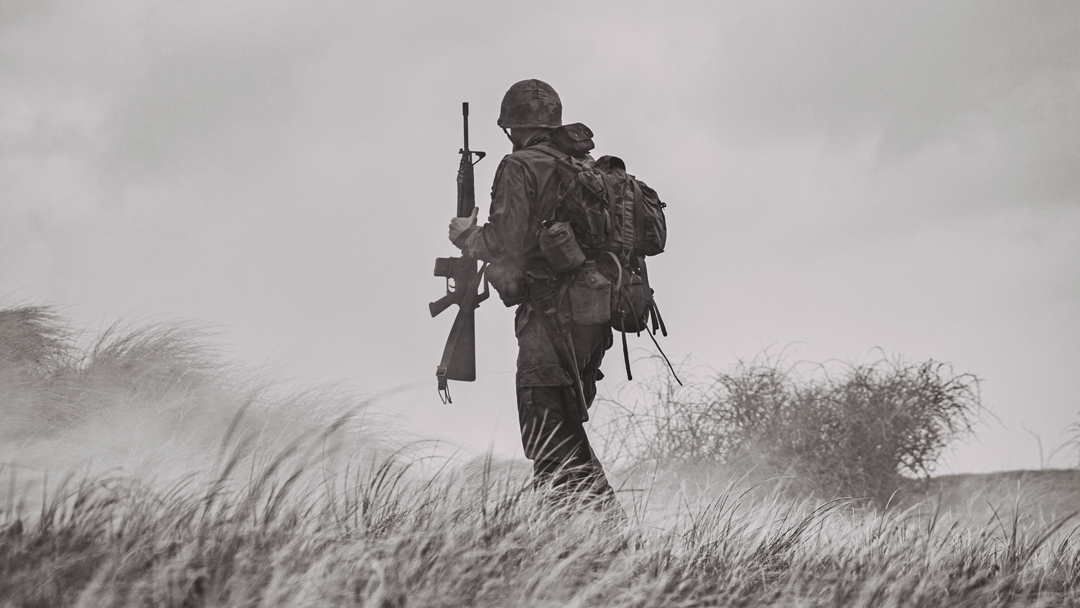God Calls Warriors, Pt. 1
- Steve Hatter

Today is Memorial Day. As many of you know, I dedicated much of my life to military service before my call to ministry, so Memorial Day stirs deep emotions in me. Our blessed church loves and supports our military members and their families because we believe military service is a worthy call of duty for the Christian, based on God’s Word. I plan to use my blog space over the coming weeks to tell you why Scripture permits and even encourages military service. This article is Part One of what will be a three-part message on Christianity and the call to war.
God calls warriors.
There are many in our culture today who find the Christian God calling a person to violence offensive. Secular Hollywood and pervasive voices in politics wish to paint a dramatic and mainly untruthful picture about war and military service—that it is pretty much all horror and pointless, and therefore something to be wholly avoided. In their view, dying in combat is not only sad but an utter waste.
Such thinking is rooted in either nihilism, which is the rejection of all religious and moral principles within the belief that life is meaningless; or existentialism, which means “live in the here and the now,” or “go for the gusto,” as Ernest Hemingway would do. The nihilists and the existentialists logically ask: “why would anyone risk life and limb for any cause other than protection and promotion of self?” Both viewpoints are amoral because they leave God entirely out of the picture which is a far more profound problem.
Then there are the more organized and aggressive anti-war voices who believe the idea of war and mortal combat is backward and unnecessary. They see the military as immoral—if not evil—and by extension, those who serve in uniform are to be scorned.
This point of view emanates from a “high view of man” perspective and argues that progressive societies can think their way clear of war. Peace is achievable through man’s ever-improving wisdom. They wish the national investment conversation to shift from defending and protecting, to the changing of people’s thinking on a broad scale, either through the government’s embracing of altruistic, utopian values or through the means of social entities, like a government-influenced church. Progressive values, they argue, must then be taught and enforced, beginning at an early age.
The 1960s was when this kind of thinking gained a lot of traction as the years added up post-WWII, and America found itself entangled in Vietnam. One writer said this when referring to the aggressive anti-military demonstrations of the 1960s and 70s:
“The U.S. military became the object of the Left’s hatred of America and a metaphor for all they saw as wrong. The military establishment represented ideals and policies anathema to the New Left: martial values, discipline, uniformity, physical courage, and moral strength derived from our Judeo-Christian heritage.”
Did you catch that? The rejection here emanates from the notion that man can and must do better than the outdated Christian God has done.
Then, like so many complex issues, we have a starkly contrasted opposite point of view—the military promoters—the Hawks, as it were—the voices who would see necessity and value, and even something worthy of worship, in military ideals and investment. And though I would personally endorse the necessity and value position, there are traps here as well when the policies and debates are absent true wisdom, which can only come from God.
In sum, history tells us support for things martial tends to ebb and flow with the tides of global events, which means people will love and support the military when threat is high, and then gravitate to indifference or rejection when life is peaceful.
Well, what we think and say as Christians about war, about the use of military force, and regarding those who believe they are called to military service, matters. It is an important thing to settle on.
We must be ready with an answer when questions or attempts to coerce come our way. Wherever we land on this issue, it must be set firm on the foundation of truth found in Scripture, and then we need to be prepared for persecution from those who would disagree with a Bible-based position.
My goal is to give you those answers over the coming weeks. I’ll hopefully accomplish my goal by asking and answering three questions:
First, what does Scripture have to say about governing authorities building up and using military forces?
Next, I’ll consider: Can a Christian, whose heart is for the lost in this world, and who is motivated by the character and person of Jesus Christ, serve in the military with a clear conscience? Moreover, is military service a called profession, ordained by God?
And finally, as Christian believers who live in a chaotic and divided culture, might we learn from looking at the military—its mission, its organization, and its ethos? As believers called by God to our mission areas—our marriages, our parenting, and our circle of influence through profession and church, can we learn from military heritage?
I’ll take on question one next Monday, but as a teaser, read Genesis Chapter three, which gives the roots of all human conflict:
“Now the serpent was more crafty than any other beast of the field that the Lord God had made. He said to the woman…” (Genesis 3:1)










